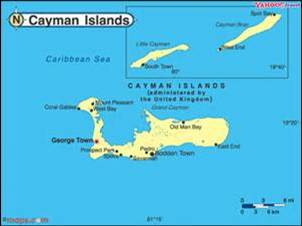Offshore
Groups Applaud Cayman Islands' EU Blacklist Exit; Oman Also Removed

While the existence of such blacklists can be politically controversial, the removal of the Cayman Islands will nevertheless be welcome for that Caribbean jurisdiction's financial industry. Oman has also been scrubbed from the list. On the flipside, Barbados and Anguilla have been added to a list now holding 12 locations.
European Union finance ministers have put the Caribbean
jurisdictions of Anguilla and Barbados on its blacklist of
tax havens, but removed the Cayman Islands. It also took the Gulf
state of Oman from the list after these
jurisdictions passed required reforms.
The EU list, created in 2017, includes a total of 12
jurisdictions: American Samoa, Anguilla, Barbados, Fiji, Guam,
Palau, Panama, Samoa, Seychelles, Trinidad and Tobago, the US
Virgin Islands and Vanuatu.
The decision to take the Cayman Islands – a British Overseas
Territory – off the list came after the EU considered it to be a
fully co-operative jurisdiction for tax purposes.
A meeting of EU finance minister comprising the Economic and
Financial Affairs Council, aka ECOFIN, reached the decision
earlier this week.
The move recognises the Cayman Islands' compliance with the EU's
requirement that the Cayman Islands put "appropriate measures in
place relating to…collective investment vehicles". The Cayman
Islands put those appropriate measures in place by passing
private funds legislation earlier in 2020 and registering more
than 12,300 private funds with the Cayman Islands Monetary
Authority by 7 August 2020, as pointed out by offshore law firm
Maples in a note
yesterday.
“The EU's decision is a welcome recognition of the Cayman Islands
as a jurisdiction which is fully committed to implementing
international standards,” Maples said.
The Alternative Investment Management Association welcomed the EU
move.
“This action by the EU acknowledges that the regimes established
by the Cayman Islands for fund regulation and the wider economic
substance requirement, as well as those for the exchange of tax
and financial information, anti-money laundering and related
measures are fully in line with international standards,” Ronan
Guilfoyle, AIMA Cayman chairman, said.
Oman had been reinstated on the EU blacklist in 2019, having
earlier been removed from it.
The existence of such blacklists can be controversial, leading to
claims that the EU – home to several low-tax jurisdictions such
as Luxembourg and Malta – is hypocritical in favouring countries
that at times have come in for criticism.
